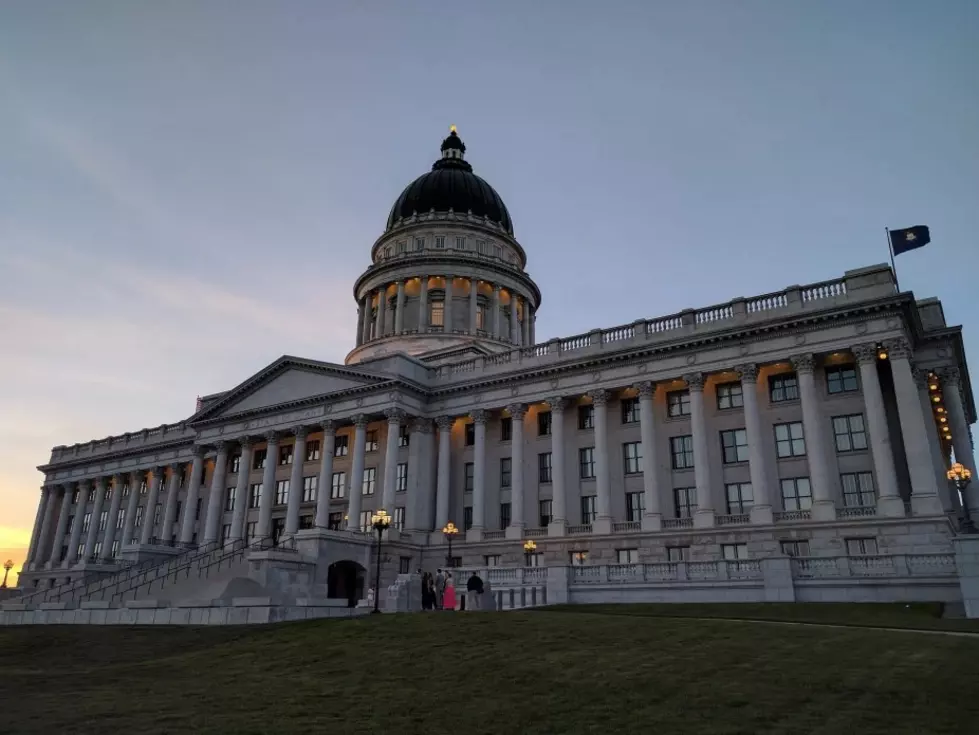
Judge blocks Utah ban on transgender youth playing in girls’ sports
Natalie Hanson
(CN) — A Utah judge blocked a state law banning transgender youth from participating in girls' athletics, months after the state's conservative political base joined the growing trend among red states.
Three teenage plaintiffs filed a lawsuit against Utah High School Activities Association, two school districts and their superintendents, claiming the law will cause irreparable harm. Third Judicial District Court Judge Keith Kelly granted their request for a preliminary injunction, finding "the ban singles out transgender girls and categorically bars them from competing on girls’ sports teams."
He added: “At the same time, other girls are free to compete. This is plainly unfavorable treatment." He also noted a federal judge in Idaho blocked that state's ban, finding, “Like women generally, women who are transgender have historically been discriminated against, not favored.”
Kelly found transgender girls do not have many opportunities to play school sports and under the Utah ban, they would have no opportunity to play at all. Excluding transgender girls from girls’ teams does not promote equality of athletic opportunity between boys and girls, he said.
The plaintiffs had presented evidence of being treated by medical professionals to transition following the standard of care developed by the World Professional Association for Transgender Health.
Kelly noted that although they identify and live as girls and are taking medication to prevent them from going through male puberty, the ban does not treat them as girls. And while one of the plaintiffs has a legal sex-change order in the state and is legally a female, "the ban treats her less favorably than other persons who are legally females," Kelly wrote.
The defendants argued that there is no disparate treatment because “biological boys” are being “singled out” by the ban. But Kelly wrote it is clear that transgender girls were “singled out for treatment different from that to which other identifiable groups were made subject.”
Federal courts have repeatedly held transgender status — even if considered as a classification separate and apart from sex — requires heightened scrutiny under the Equal Protection Clause. Federal courts have also determined that heightened scrutiny applies to blanket exclusions of transgender girls from competing on girls’ teams, and Kelly found Utah law requires the same scrutiny in this state court case.
“The defendants do not offer persuasive reasons to categorically ban all transgender girls from competing on girls’ teams,” Kelly wrote. He said evidence from plaintiffs shows no basis for assuming transgender girls have physiological advantages over other girls, in part because they often transition before puberty and miss any potential advantages from the increased production of testosterone.
He also wrote that there is evidence that the plaintiffs face irreparable harm due to violations of their rights under Utah’s uniform operation of law clause, facing social ostracization and subsequent mental and physical harm if they cannot play on team sports.
“Thus, the effect of this preliminary injunction will not mean that transgender girls will automatically be eligible to compete on their school’s girls’ teams,” Kelly wrote. He wrote that each plaintiff will seek permission from a commission to play, and he is not persuaded that giving transgender girls a chance to participate in school sports on an equal footing with other girls poses any threat to the public interest.
Utah law has long permitted a transgender person to petition a state court for a legal gender marker change. The Utah Supreme Court has held a person has a common-law right to change their personal legal status, and any resident requesting a name change or sex change approved by a Utah court can file with the state registrar to change their birth certificate.
This past March, Republican lawmakers in Utah overrode a veto by Governor Spencer Cox, who drew national headlines for bucking his party’s increasingly sharp rhetoric against transgender women competing in women's sports.
The Republican said in a letter explaining his veto that there are only four transgender athletes in Utah — out of approximately 75,000 students who participate in high school athletics — and their exclusion from sports could further exacerbate feelings of isolation and otherness.
“There seems to be a belief that any biologically born male could simply say he was transgender and begin participating in women’s sports,” Cox wrote. “This is incorrect. For many years now, the UHSAA has had in place a rule that only allows male-to-female transgender participation in women’s sports after a full year of difficult transition hormone therapy and in consultation with a health care professional.”
The governor also said the Legislature rushed House Bill 11 and skipped typical negotiating processes that would have resulted in a better bill. Of Friday's ruling, his spokesperson Jennifer Napier-Pearce said, "The governor is reviewing the opinion including his responsibilities under current law."
Utah became the 11th state to pass a law forbidding transgender youth from competing in women’s sports. Advocates for the bill contend allowing people who were born male to compete in women sports will destroy female athletics due to natural male advantages in most athletic categories, particularly as it relates to strength and speed. The Utah Athletic Association, which declined to comment on Friday's ruling, came out against the bill and said it lacks funds to enforce the measure and to fight it in court should the parents of transgender youth sue.
Transgender youth are particularly vulnerable to mental health issues and suicide, something Cox noted in his veto message. “I want them to live," he wrote.
A study published by the American Academy of Pediatrics found 40% of transgender youth have attempted suicide, a much higher rate than the general population.
